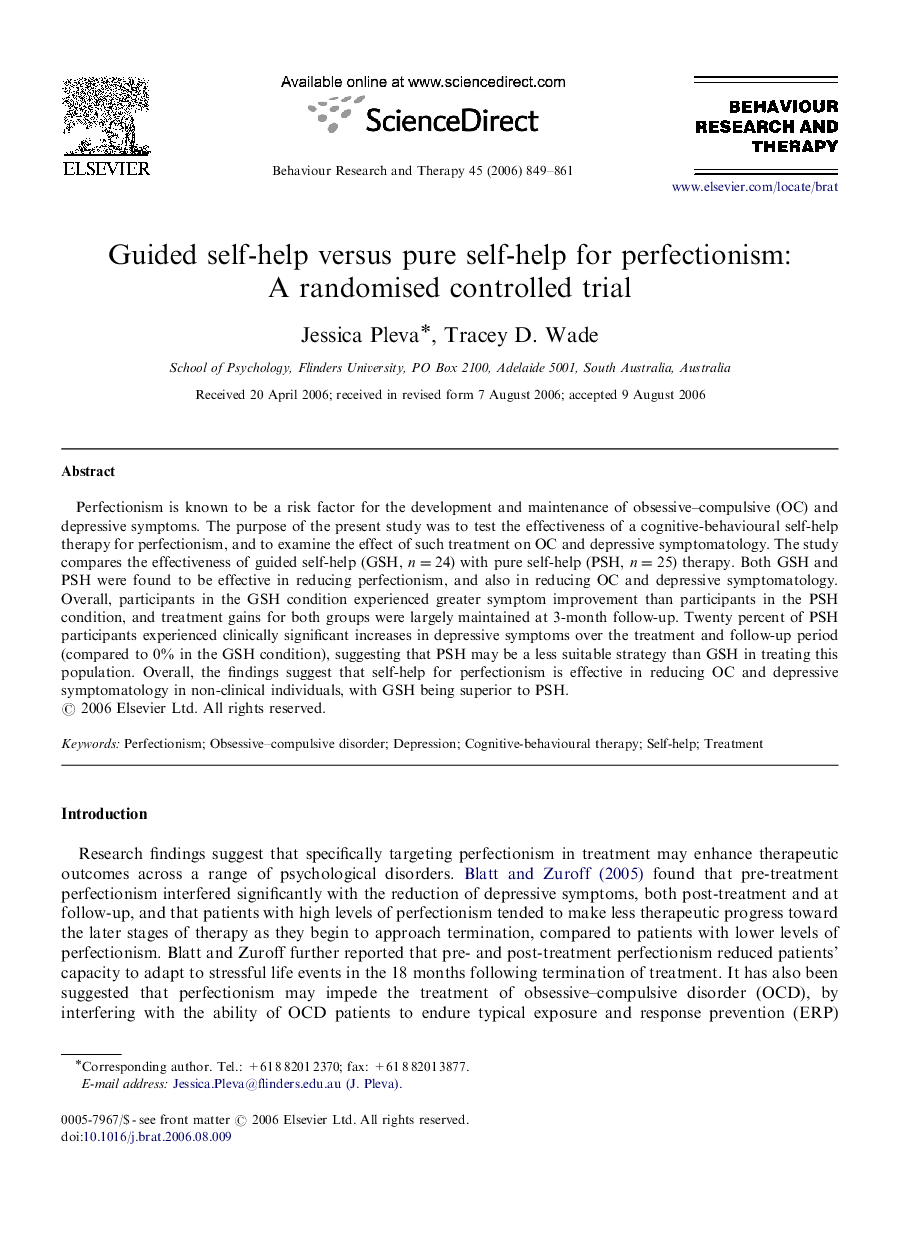| Article ID | Journal | Published Year | Pages | File Type |
|---|---|---|---|---|
| 902327 | Behaviour Research and Therapy | 2007 | 13 Pages |
Perfectionism is known to be a risk factor for the development and maintenance of obsessive–compulsive (OC) and depressive symptoms. The purpose of the present study was to test the effectiveness of a cognitive-behavioural self-help therapy for perfectionism, and to examine the effect of such treatment on OC and depressive symptomatology. The study compares the effectiveness of guided self-help (GSH, n=24) with pure self-help (PSH, n=25) therapy. Both GSH and PSH were found to be effective in reducing perfectionism, and also in reducing OC and depressive symptomatology. Overall, participants in the GSH condition experienced greater symptom improvement than participants in the PSH condition, and treatment gains for both groups were largely maintained at 3-month follow-up. Twenty percent of PSH participants experienced clinically significant increases in depressive symptoms over the treatment and follow-up period (compared to 0% in the GSH condition), suggesting that PSH may be a less suitable strategy than GSH in treating this population. Overall, the findings suggest that self-help for perfectionism is effective in reducing OC and depressive symptomatology in non-clinical individuals, with GSH being superior to PSH.
